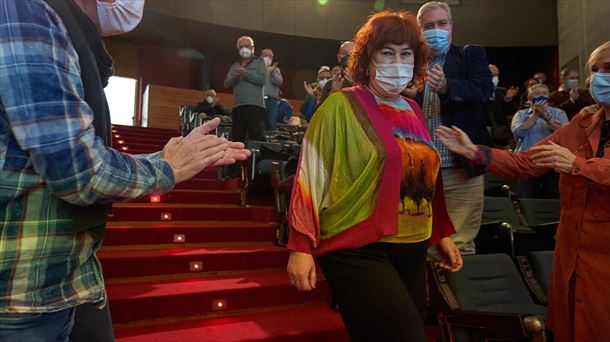Eight percent inflation – the highest since the oil crisis in the 1970s. The government is challenged – quite a bit of thinking: overwhelmed. There is consultation between the government and social partners, an emergency package is needed. And fast.
It is the commandment of difficult hours. The middle class is already there. Food, housing, fuel. There are calls for rent limits and freezes. Retirees also feel neglected in the discourse.
SPÖ representative Peter Kostelka was present at the negotiations on Wednesday. He says: “The government came without a concrete plan.” Motto: Nothing decided, everything open. Kostelka: “Waiting until autumn means disappointing the retirees.” One thing is certain: in October there will be a CO2 price and a climate bonus. Much discussed. Joel Tölgyes of the Momentum Institute: “With the delay, there is a risk that people will remain dependent on the car more than necessary.”
Wifo expert Margit Schratzenstaller or economist Stephan Schulmeister, who are calling for swift action to combat climate change, see it in a similar way.
Criticism of the opposition and the union
Much, however, is still immature. A solution is still being sought. There are many open, important questions: will there be adjustments or one-off payments for benefits? The coalition partners have different perspectives on this.
The union is calling for “immediate price cuts for energy, housing, food and mobility”. The opposition criticizes the government for inaction. Also at the meta level. Cold progression, a particularly hot terrain for decades. For Agenda Austria, the boss is the “secret lover of the finance minister”. His name is Magnus Brunner and he wants to get rid of her. If it doesn’t happen by 2025, taxpayers will be allowed to pay another 14 billion for it.
Advantages and disadvantages for different ideas to relieve Austrians:
CO2 pricing: how sensible is delay?
Pro: The delay brings relief in the midst of inflation, which is already hitting people hard.
Against: Delayed use of the measure against climate change is a problematic signal, according to experts.
Cost: According to calculations, the starting rate of 30 euros per tonne means a price increase of about 9 cents per liter for fuel.
The introduction of the climate bonus for everyone?
Pro: Increase from 100 to 250 euros. And for everyone throughout Austria. That’s a decent increase.
Against: NGOs criticize the delay, experts like Joel Tölgyes (Momentum) argue for social differentiation.
Cost: According to Agenda Austria 250 for everyone and 120 for 18-year-olds: 2.03 billion euros per year.
Indexation of benefits?
Pro: Adjustment provides a kind of security. More and more people are falling into poverty or can barely afford the basic necessities of life.
Against: More costs for the state. The Chancellor is against indexation. The Greens for it.
Cost: The inflation-adjusted subsidies are being negotiated. It is therefore not yet possible to make forecasts about the costs.
One-time payment for social recipients?
Pro: The costs to the state are easier to calculate and bring immediate relief.
contrary: Economist Tölgyes: “One-off payments help, but in times of inflation they are not enough as long as they are paid too late.” Higher and more reliable monthly payments are needed.
Cost: Depending on the amount of any benefits.
Reduce VAT on groceries?
Pro: Proposal from the SPÖ, which could also help the Greens. Experts think a temporary reduction of the staple food is sensible.
Against: Chancellor Karl Nehammer does not believe this is correct. In fact, the reduction would not only benefit the poor.
Cost: How big should the drop be? And who pays the fee?
Introduce a fuel price cap?
Pro: Relief especially for the many commuters. Already rehearsed in countries like Hungary or Slovenia. Also mandatory in Austria, including by the FPÖ.
Against: According to Agenda Austria, upper limits are ruining the market. Rich households also benefit from a fuel cap.
Cost: According to experts, no serious assessment is possible without concrete figures.
Increase travel allowance?
Pro: More focused than a fuel limit, which also benefits those who stay with the car despite good public transport connections.
Against: watering can. The already 50 percent increase by Minister Gewessler is incorrect, critics say. The lowest income quarter recently received only 3% of the tax pie, the highest income quarter twelve times as much.
Cost: About two billion a year.
Ban on rent increases?
Pro: Freezing the upper rent limit for category and benchmark rents until 2025. That’s what the Reds are demanding. Then there are caps to come. Many can hardly afford a home.
Against: Possible effects on the housing market in general. Providers could invest less in maintenance. Or generally taking objects off the market.
Cost: Cannot be estimated.
Indexed pension adjustment?
Pro: Retired people feel neglected. 2.4 million, many in precarious circumstances. A rich group, so they can buy.
contrary: More and more people are retiring. The starting age hardly changes. It costs. Someday someone will have to pay for this.
Cost: By 2025, the federal government must inject 125 billion euros to be able to pay out the pensions.
Abolish Cold Progression?
Pro: An eternal theme: for the Minister of Finance, the cold progression means billions of extra income. Huge extra burden for the citizens.
Against: The lower incomes hardly benefit from the abolition, because they often pay little or no wage tax.
Cost: From 2022 to 2025, thanks to the creeping tax increase, the state will receive an extra 14 billion.
Source: Krone
I’m an experienced news author and editor based in New York City. I specialize in covering healthcare news stories for Today Times Live, helping to keep readers informed on the latest developments related to the industry. I have a deep understanding of medical topics, including emerging treatments and drugs, the changing laws that regulate healthcare providers, and other matters that affect public health.



